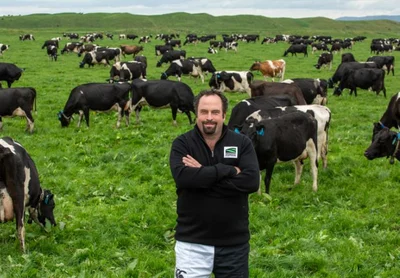Gun law plans hit the mark

The Government’s intention to rewrite the country's gun laws as part of its planned firearms reforms has been welcomed locally.
Ashburton Pistol Club president Lindsay Giles said his organisation had to jump through a "tremendous amount of hoops" since the tightened rules came into force in 2019, which is why he’s in favour of a review.
"It's taken myself and the club secretary numerous hours to read through all the information and make sure we have covered for all sorts of indemnities,’’ Giles said.
"As a non-profit club, it's been very hard for us to meet all the restrictions and obligations, but we have done it."
He knows change is needed.
"Something definitely needs to be done.
"At the moment there seems to be a lot of interpretation of the legislation and not all makes sense.”
Associate Justice Minister Nicole McKee has announced a comprehensive programme to reform what she said was New Zealand’s "outdated and complicated” firearms laws.
She said the Arms Act had been in place for over 40 years and would be rewritten by 2026, with the aim to modernise the law "so that it provides for greater public safety, reflects best regulatory practice, and is fit for purpose".
McKee said the firearms registry would be reviewed and the Firearms Safety Authority would be transferred from police to another government department.
The first of four two phases of the firearms reforms were underway, including strengthening firearms prohibition orders and changes to shooting club regulations.
Federated Farmers firearms’ spokesperson Richard McIntyre said the changes were "long overdue".
"The legislation needs a really good look at because there have been changes over time to improve public safety, but they have been piecemeal,’’ he said.
"Farmers need firearms as a vital tool to control pests and euthanise stock.
"We also need recreational hunters to have access to firearms as well to help control pests on farms."
He said many farmers felt existing laws placed an undue burden on firearms owners, with significant compliance costs.
"A lot of the changes to our gun laws were made following the March 15 terrorist attack, but consultation wasn’t good enough and felt rushed,’’ he said.
"I absolutely understand why those changes were made to give the public confidence in their safety, but I’m not sure we got the balance right.
"We now have a chance to take a closer look, with more time and a clear head, and design a system that protects our communities without being overly onerous for firearms owners.”
McIntyre said that, despite best efforts, the Firearms Safety Authority wasn't running perfectly, and he described the gun register as "clunky".
"In this review, it's important to pull everything apart and say, 'What are we trying to achieve here, and how do we best do that?’.
"It's about balancing public safety with the genuine and reasonable needs of recreational and professional firearms users."
The Firearms Safety Authority's limitations were in the spotlight recently, with the Act Party alleging the organisation had asked a former army officer and Afghanistan veteran for a criminal record check when he was applying for a firearms licence renewal.
Act MP and spokesperson for agriculture and veterans Mark Cameron said the applicant had to explain to the Firearms Safety Authority that he was in Afghanistan serving in the New Zealand army against the Taliban.
The Taliban, being the ruling authority in Afghanistan, would be the group he would now have to request a positive reference, Cameron said.
"Why on earth have they sought advice from what can only be viewed as a terrorist organisation to validate this person, who says he is obviously of sound mind and body, is beyond me,’’ Cameron said.
"When validating someone's character, I wouldn't imagine going to a terrorist organisation is the best place to start."
By Claire Inkson
